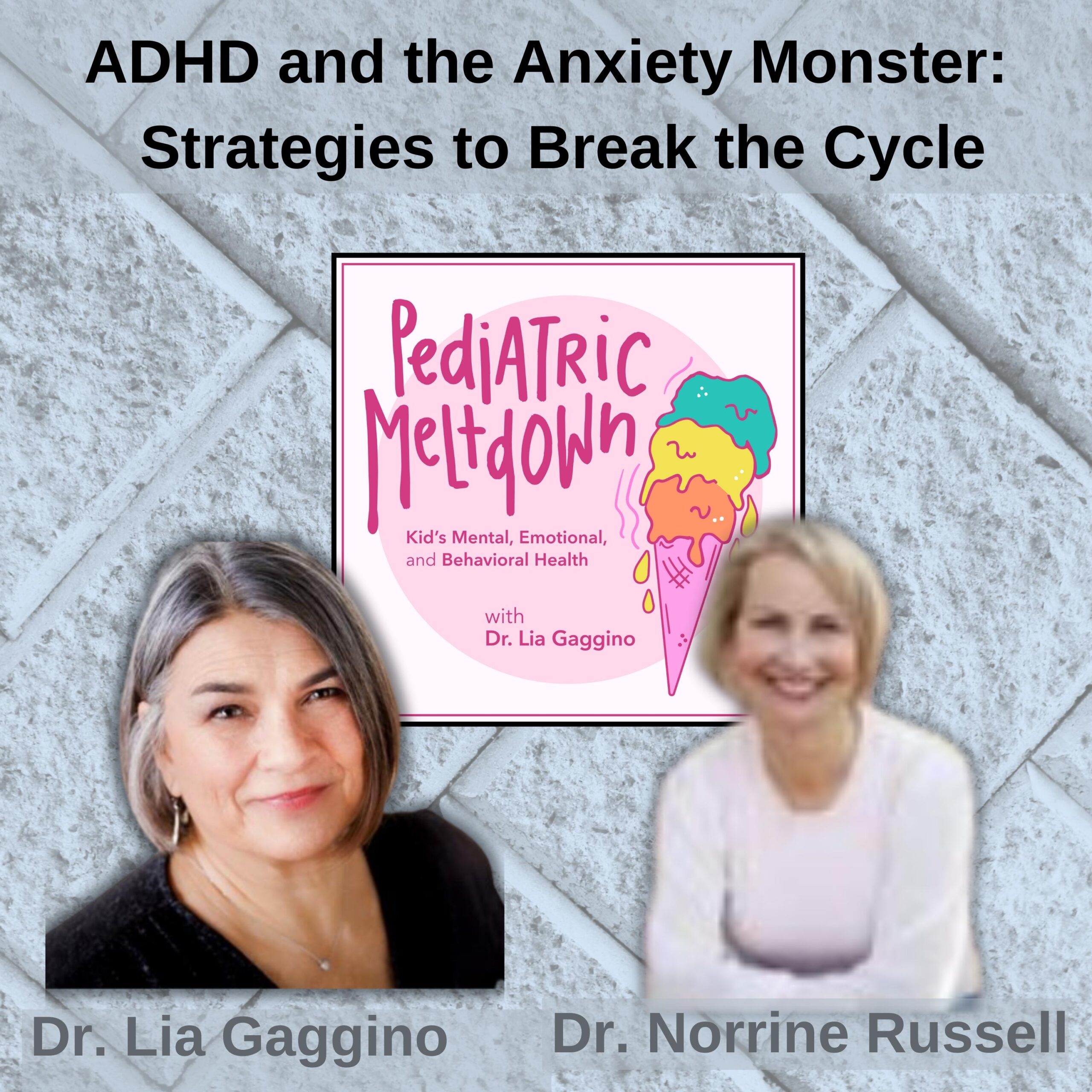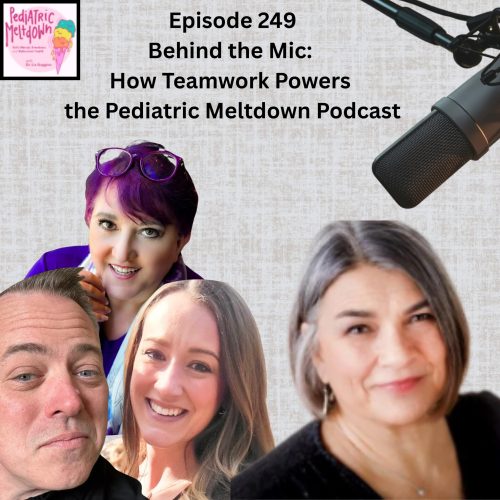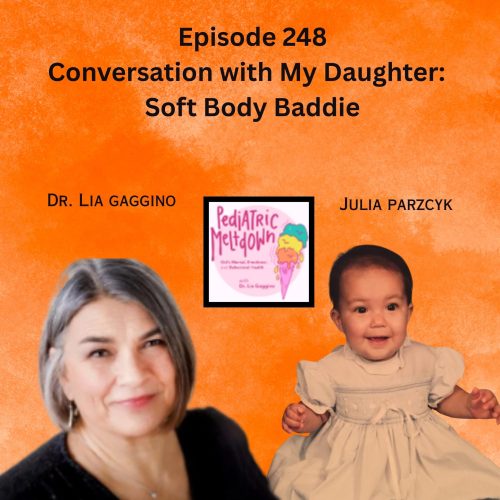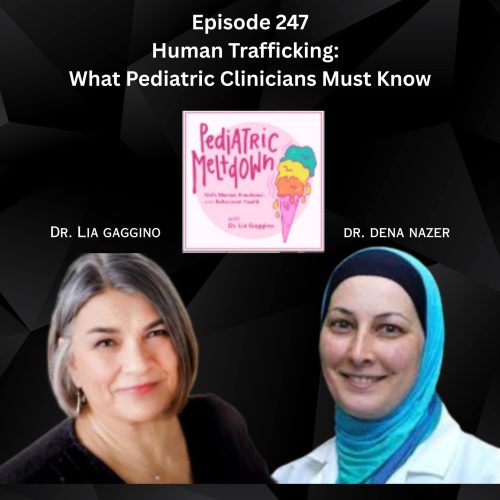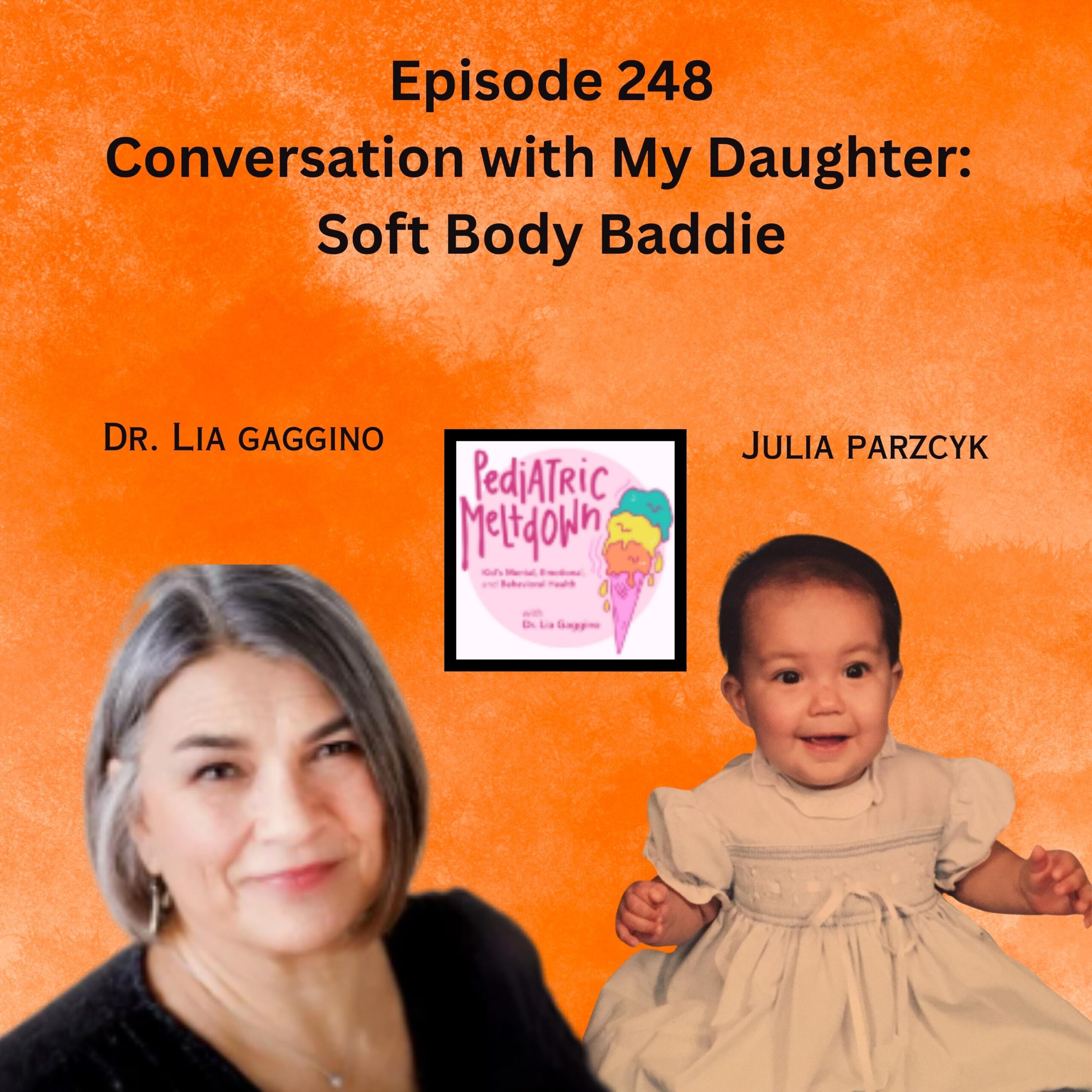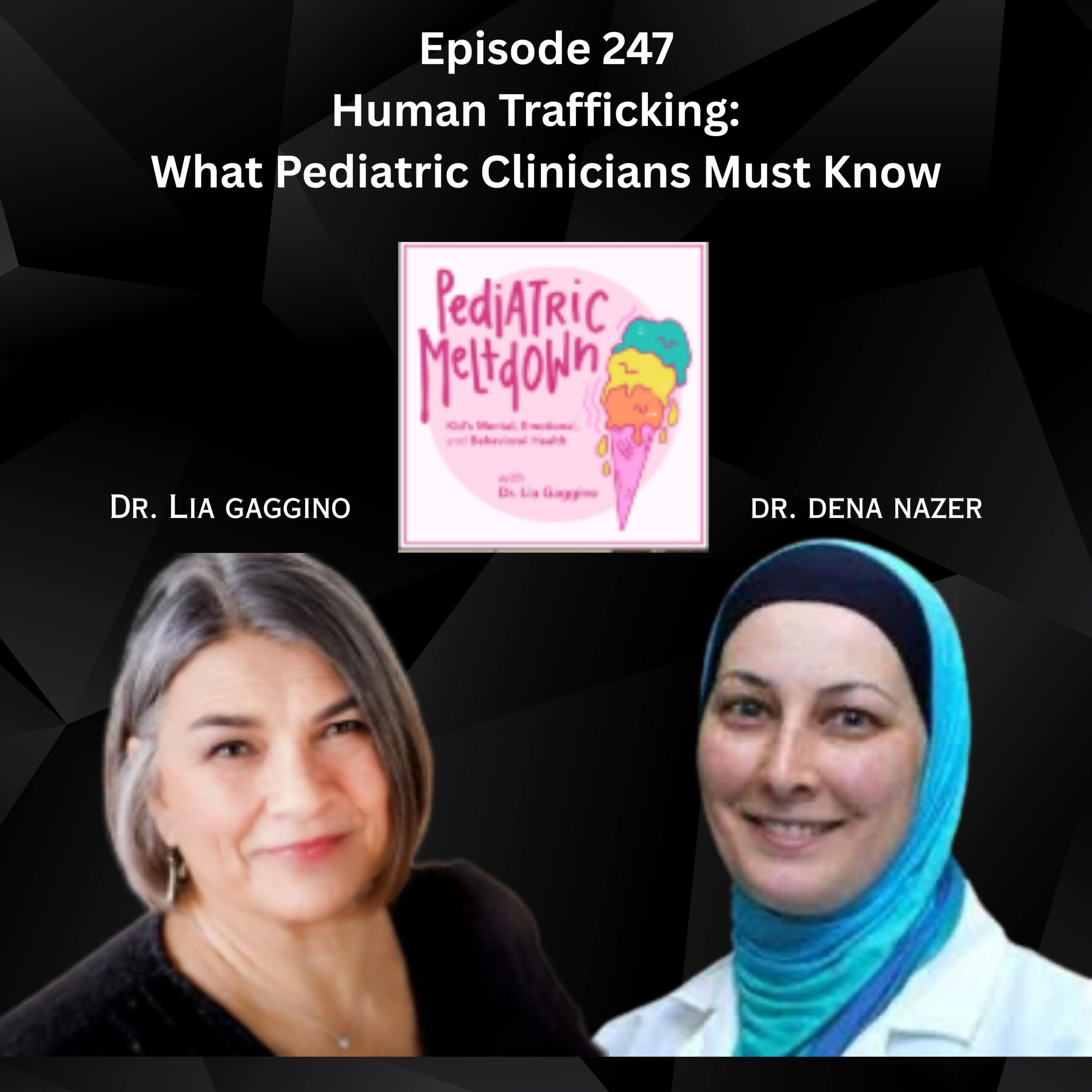ADHD and the Anxiety Monster: Strategies to Break the Cycle
Have you ever wondered if ADHD is being misunderstood or misdiagnosed in children, leading to feelings of failure and unchecked anxiety?
In this episode of Pediatric Meltdown, host Dr. Lia Gaggino and Dr. Norrine Russell talk about the complexities and nuances of ADHD, and the need for systemic change in identification, assessment and management. They shed light on the importance of reframing ADHD as non-willful behavior, the role of early intervention, and the need to consider 504 accommodations and individualized education plans to promote academic success.
With data-backed insights and real-world anecdotes, this discussion underscores the urgency of a more equitable and comprehensive approach to ADHD treatment.
This is a must-listen for educators, parents, and healthcare providers.
[00:38 – 9:48] Unpacking ADHD and Common Misinterpretations
- Definition of “pure ADHD,” described as a potential “gift,” affecting a smaller segment of diagnosed children.
- Discussion on comorbidities like dyslexia, dysgraphia, mood disorders, and autism, affecting two-thirds of ADHD-diagnosed children.
- Issues of whether anxiety stems from late-diagnosed ADHD or contributes to its symptoms.
- Emphasis on early intervention to prevent ADHD from triggering anxiety and encourages proper diagnosis to avoid misunderstanding behaviors.
[09:49 – 16:16] Individualized Educational Approaches and Social Skills
- Importance of personalized educational strategies for neurodivergent children, avoiding a “one size fits all” methodology.
- Benefits of involving children in solution-finding processes for tailored educational support.
- Highlighting social delays in children with ADHD and the role of structured activities in fostering social interactions.
- Allowing children to build on their strengths and interests to enhance self-esteem and personal growth.
[16:17 – 23:30] Challenges in Diagnosing and Treating ADHD
- Discussion on the misconception of oppositional defiant disorder (ODD) and its potential misinterpretation as ADHD symptoms.
- Need for differential diagnosis to distinguish between ODD and ADHD, particularly in the context of trauma.
- Advocacy for multimodal ADHD treatment plans, integrating medication, parent education, and school plans as per American Academy of Pediatrics guidelines.
- Addressing systemic inequities in healthcare affecting children on Medicaid and the impact of racial biases on ADHD treatment.
[23:31 – 55:03] Tools, Resources, and the Path Forward
- Discussing genetic links and familial patterns discovered during psychosocial intakes.
- Importance of early identification to prevent negative academic cycles and enhance engagement.
- Promoting ADHD acceptance and self-advocacy by normalizing brain differences.
- Recommendations for educational materials, like “ADHD is Awesome” and “The Anxious Generation,” and promoting Norrine’s podcast for further insights.
[55:04 – 1:03:10] Closing Thoughts
Resources Mentioned:
- Vanderbilt and Connors Symptom Trackers (Symptom Trackers) Vanderbilt ADHD Diagnostic Rating Scale (VADRS) – Psychology Tools
- Book: ADHD Is Awesome – ADHD is Awesome: A Guide To (Mostly) Thriving With ADHD: Holderness, Penn, Holderness, Kim, Edward Hallowell: 9781400338610: Amazon.com: Books
- Book: The Anxious Generation Amazon.com: The Anxious Generation: 9780241694909: Jonathan Haidt: Books
- Podcast: “ADHD, Autism, and Anxiety: Breaking out of the Box” – ADHD, Autism, And Anxiety: Breaking Out of The Box
- Book: Driven to Distraction – Driven to Distraction (Revised): Recognizing and Coping with Attention Deficit Disorder: Hallowell M.D., Edward M., Ratey M.D., John J.: 8581000001720: Amazon.com: Books
Connect with Dr. Russell:
- Facebook: Russell Coaching
- LinkedIn: @Norrine Russell
- Instagram: @russellcoachingllc
- Dr. Russell’s Website: Russell Coaching – Creating School Success for ADHD & Atypical St…
- Podcast: “ADHD, Autism, and Anxiety: Breaking out of the Box” – ADHD, Autism, And Anxiety: Breaking Out of The Box
Other episodes you may like:
https://pediatricmeltdown.com/episodes
120 ADHD: Part 4 Executive Function
119 ADHD Part 3: Executive Function
109 ADHD Symptoms: Executive Functions Part II
ADHD: Strategies for Boosting Executive Function
Dr. Russell’s Prior Appearances on Pediatric Meltdown
- Neurodivergent Youth: What Support Looks Like
121 ADHD Coaching: Moving the Success Needle
Tweetable Quotes:
“I don’t think that schools in general have a deep understanding of what DOES work for the kid with ADHD.”… Dr. Norrine Russell on understanding ADHD in schools.
“I hope in the next 10 years, we will really be able to have better differential diagnosis between some of the outcomes of untreated or undertreated ADHD (or ADHD that’s not being managed properly at home or at school) and TRUE ODD, which is really different from the result of ADHD.”….Dr. Norrine Russell on Differential Diagnosis of ADHD and ODD
**TRANSCRIPT AVAILABLE UPON REQUEST**
SUBSCRIBE & LEAVE A FIVE-STAR REVIEW and share this podcast to other growing entrepreneurs! Get weekly tips on how to create more money and meaning doing work you love and be one of the many growing entrepreneurs in our community. Connect with me on LinkedIn; https://www.linkedin.com/groups/12656341/ or on Instagram or our website at www.lifeaftercorporatepodcast.com .

